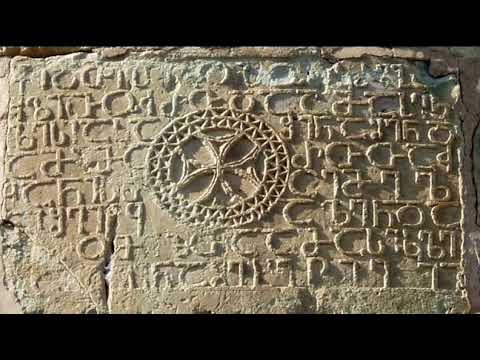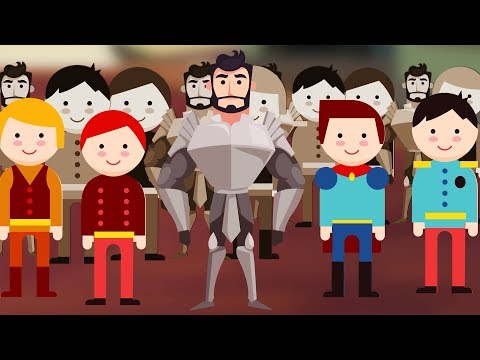Dzala ertobashia | Wikipedia audio article
This is an audio version of the Wikipedia Article:
Dzala ertobashia
00:01:15 undefined
Listening is a more natural way of learning, when compared to reading. Written language only began at around 3200 BC, but spoken language has existed long ago.
Learning by listening is a great way to:
- increases imagination and understanding
- improves your listening skills
- improves your own spoken accent
- learn while on the move
- reduce eye strain
Now learn the vast amount of general knowledge available on Wikipedia through audio (audio article). You could even learn subconsciously by playing the audio while you are sleeping! If you are planning to listen a lot, you could try using a bone conduction headphone, or a standard speaker instead of an earphone.
You can find other Wikipedia audio articles too at:
/ @wikipediatts983
You can upload your own Wikipedia articles through:
https://github.com/nodef/wikipedia-tts
"The only true wisdom is in knowing you know nothing."
- Socrates
SUMMARY
=======
Dzala ertobashia (Georgian: ძალა ერთობაშია, pronounced [d͡zɑlɑ ɛrtʰɔbɑʃiɑ], "Strength is in Unity") is the official motto of Georgia.
It originally comes from a famous fable by Sulkhan-Saba Orbeliani of the same name. According to this fable, once upon a time there lived a king with thirty sons. One day, when he was dying, he called his sons and asked them to bring arrows. Then king asked them to break the arrows one by one, and the sons did. The king then asked them to break the arrows all at once, and they could not. The king said: "Teach O my sons from this fact, that there is ‘strength in unity.’ If you are together, an enemy cannot do you wrong, but if you are divided, victory will be on their side."
The problem of unity is very real for the Georgian state, and thus was likely a factor in the decision to make the phrase the national motto.
Versions of this phrase are the national mottos of Belgium, Bulgaria, and Haiti, and also formerly in the historical Traansvaal, apartheid-era South Africa (as Ex Unitate Vires), and Malaya. There is a popular legend in Bulgaria about Kubrat, ruler of Great Bulgaria, who also gave his sons the same advice by the same example.
wikipedia tts-ის სხვა ვიდეოები
 05:14
05:14
Principality of Svaneti | Wikipedia audio article
 24:42
24:42
Eduard Shevardnadze | Wikipedia audio article
 00:59
00:59
Bolnisi cross | Wikipedia audio article
 01:08
01:08
Georgian Stock Exchange | Wikipedia audio article
 02:29
02:29
Lazica | Wikipedia audio article
 04:34
04:34
Akhalkalaki | Wikipedia audio article
 00:51
00:51
Samachablo | Wikipedia audio article

მსგავსი ვიდეოები

გიორგი სააკაძე , ძალა ერთობაშია
DZALA ERTOBASHIA

unity is strength - ძალა ერთობაშია("მგზავრები")
Fiixx Youu

dzala ertobashia - ძალა ერთობაშია
Georgian Kingdom

ძალა ერთობაშია / Dzala Ertobashia - 13 ივნისი 2015
Ramaz Chkhikvadze

Lil Mimi \u0026 Sofia Green - ძალა ერთობაშია (Dzala ertobash...
MiSo Station

დაპირისპირება ძალა ერთობაშიაში
TV IMEDI
![მგზავრები - ძალა ერთობაშია [ კლიპი ]](https://i.ytimg.com/vi/2FtobXoVwu8/hqdefault.jpg?sqp=-oaymwEbCKgBEF5IVfKriqkDDggBFQAAiEIYAXABwAEG\u0026rs=AOn4CLCW2ts7FBsZVGAgaaBAaH9LRKT9Gw)
მგზავრები - ძალა ერთობაშია [ კლიპი ]
Alexander Ghughunishvili

ძალა ერთობაშია ✊ სულხამ-საბა ორბელიანი იაგავარაკი. ზღაპრები...
Dani TV